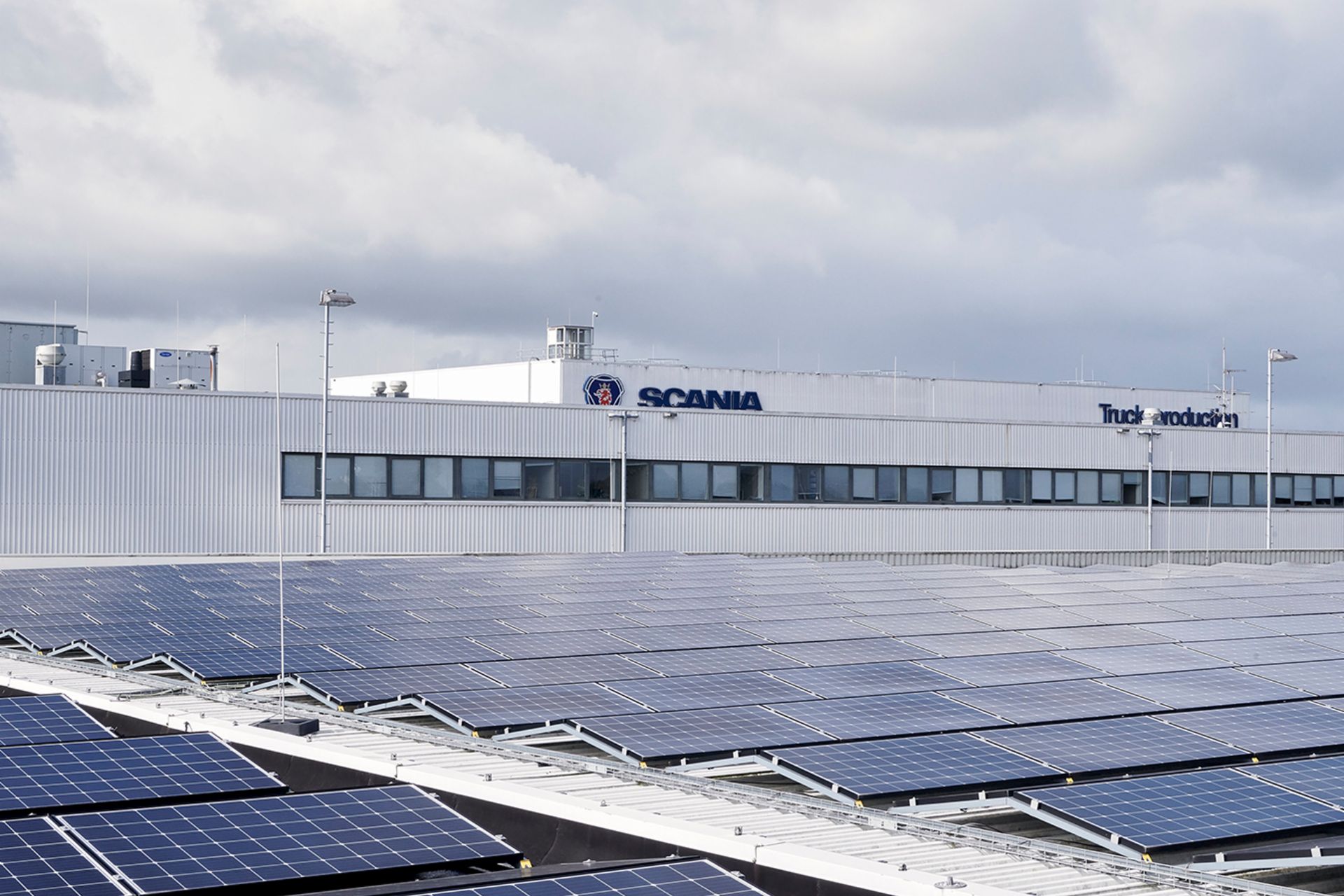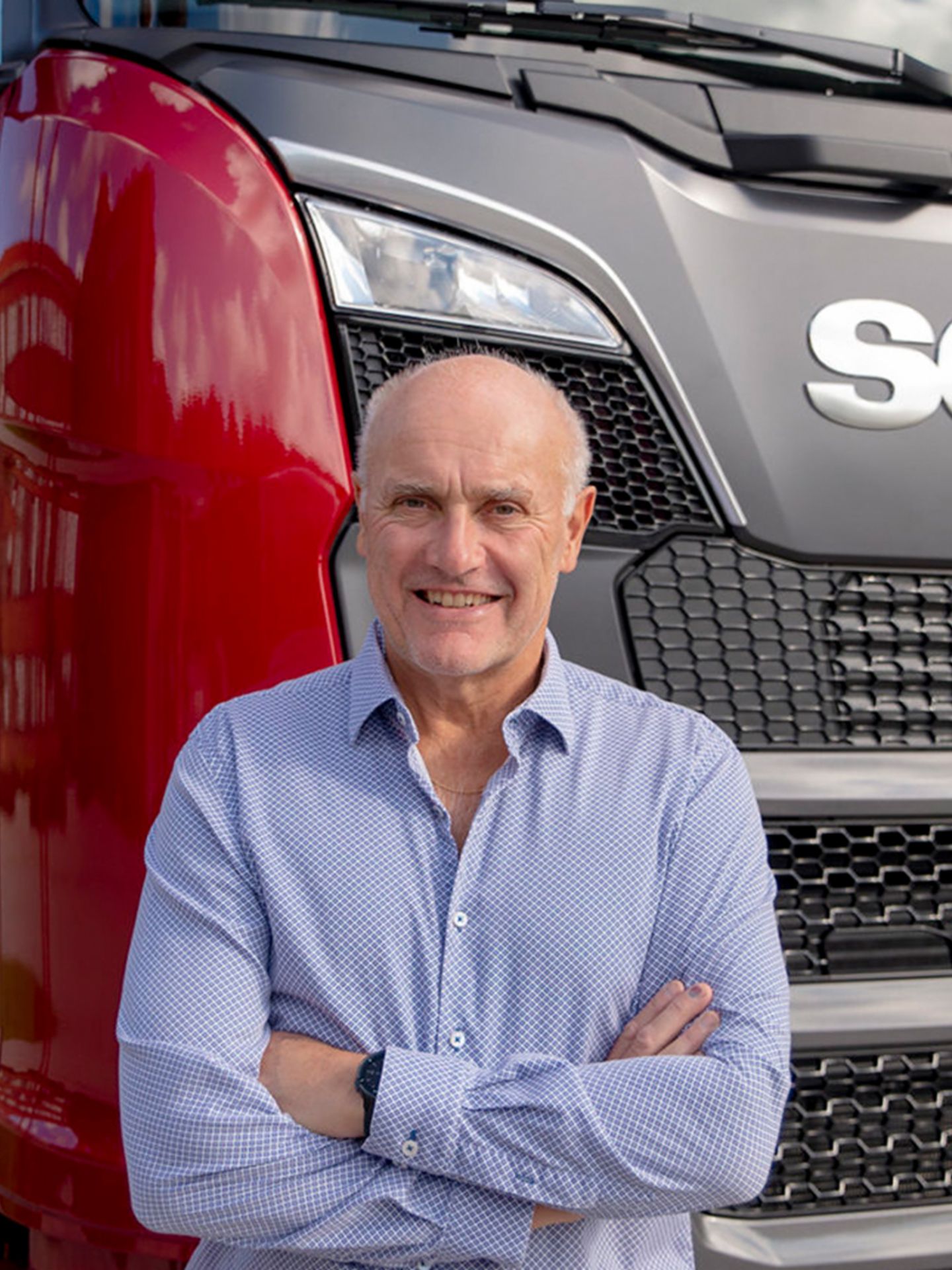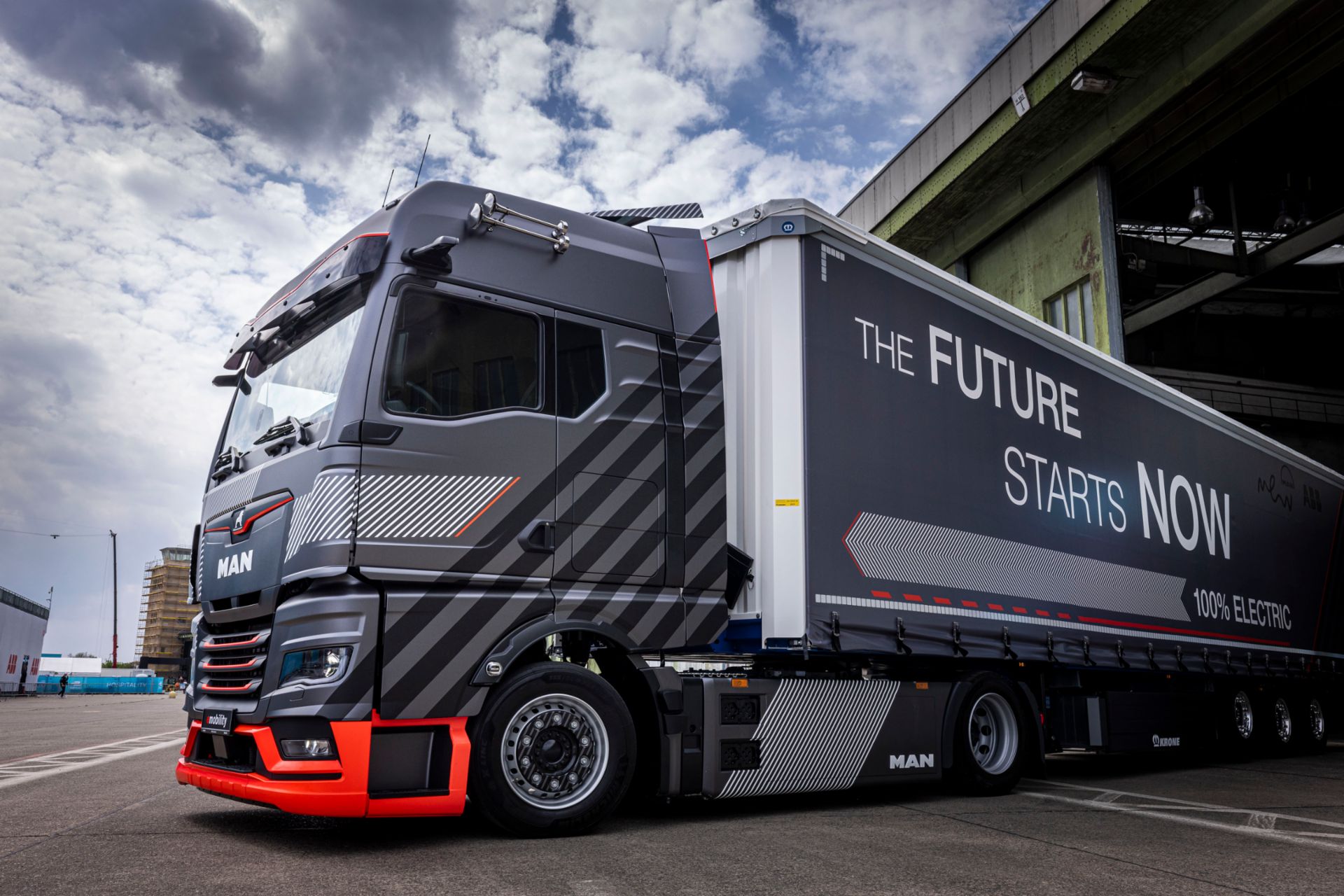Millions of vehicles from the TRATON brands Scania, MAN, International, and Volkswagen Truck & Bus traverse the world’s highways every day – delivering important freight to people all the time. As crucial as this stream of goods is, for the environment it is not without consequences: the logistics sector’s emissions are significant. TRATON has pledged to lower these emissions drastically. On the one hand, this is achieved through the electrification of trucks and use of biofuels during the transition period. On the other, it also requires the decarbonization of supply chains, production, and administrative buildings.

Procuring renewable energy and producing it in-house
A consistent energy strategy and guidelines for renewable energy are key elements of decarbonization. It ensures all TRATON GROUP brands consistently use renewable energy as much as possible in the specific market. The company and its brands can produce this energy themselves – for example by using solar panels on the rooftops of their plants and real estate as well as offsite wind farms. Or, and that is the more commonly used option, they can purchase energy from third parties. In this case, certificates or similar documents are used to make sure it comes from green sources.
The “Energy Hubs” currently being established play an important role for TRATON and its brands in this process. They are cross-brand partnerships in various regions which jointly purchase and produce energy as well as the corresponding certificates, reselling them among each other as needed. In addition, they share expertise and jointly develop strategies tailored to the respective market.
Energy Hubs grow knowledge and strengthen negotiating positions
Leif Borgstedt is the initiator and leads the Energy Hubs. At TRATON, everybody just calls him “Mister Energy” – just like his colleagues at Scania do, where he has worked since the 1990s. “Regulations on energy differ significantly between the various regions. Until recently, we had one or more experts for this topic at each market and company who didn’t work jointly,” says Borgstedt, Head of Sustainable Energy at TRATON. “With our Energy Hubs, we are creating partnerships across brands in which we combine regions or countries with more or less similar energy markets. In these partnerships, experts share and grow their knowledge.”
“With our Energy Hubs, we are creating partnerships across brands in which we combine regions or countries with more or less similar energy markets. In these partnerships, experts share and grow their knowledge.”
Leif Borgstedt Head of Sustainable Energy at TRATON
According to Borgstedt, cooperating in this way has significant ecological benefits: “If we jointly purchase a large quantity of renewable energy on a particular market, we incentivize local electricity providers to actually feed in more green energy.” Furthermore, a TRATON brand can allocate energy from another that currently uses less than was projected.
Pricing is another important advantage. “Together, we are in a stronger negotiating position, since we buy much larger quantities of energy,” explains Borgstedt. The result: “We are able to achieve lower prices, manage energy risks and reduce costs for all brands.”

Partnerships in Northern Europe and France
The partnerships’ potential is immense – especially since, globally speaking, they are in their infancy. A couple of Energy Hubs are already in operation, including one in the Nordic Countries, Borgstedt’s home.
Yves Thépaut, Managing Director of Scania Real Estate Services AB, reports that TRATON has seen positive results from cross-brand energy procurement in France as well: “In 2016, the TRATON brands Scania and MAN Truck & Bus as well as the Volkswagen brand MAN Energy Solutions joined forces and negotiated a new electricity contract. Our joint volume was much larger, and we were able to achieve a considerably lower price.” They then used the same approach to procure natural gas together.
Thépaut, Borgstedt, and their teams are now taking the next step: turning the French Hub into the Hub for Western Europe – working hand in hand with their colleagues from Germany and the Netherlands.

Challenging energy markets in Latin America
Cross-country partnerships also exist on the other side of the Atlantic. Volkswagen Truck & Bus in Brazil has a longstanding partnership with Scania and Volkswagen Passenger Cars to purchase renewable energy and certificates. This cooperation formed the basis for an Energy Hub, which also – also including the colleagues from Mexico.
Besides purchasing certified green energy at better prices, producing it in-house is also a major focus of the project. “We have established a process to prioritize the installation of solar panels on new buildings in Brazil and Mexico,” says Priscila Rocha, Head of Sustainability and ESG at Volkswagen Truck & Bus in Brazil and one of the project leads.
The main challenge for this Energy Hub: the markets involved are much more different than those in the European regions. An example: “In Brazil, we can just buy certificates on the market. In Mexico, however, we have to purchase them from the government through a complex process,” says Rocha. Nevertheless, the partnership has been so successful that the Energy Hub is set to grow: Argentina and Colombia will join it as the next countries.
Further Hubs are already planned
On the topic of growth: TRATON aims to establish energy partnerships in more regions, such as in the important market China. There, a new Scania factory is under construction in Rugao. “We are currently optimizing energy supply for the new production site,” says Leif Borgstedt. Work on the future of low-emission transport never stops at TRATON – all around the world.




